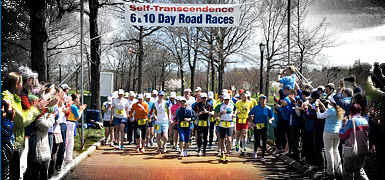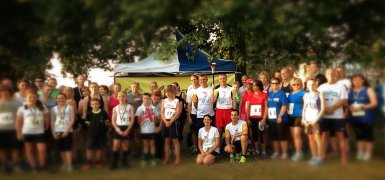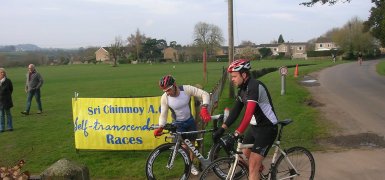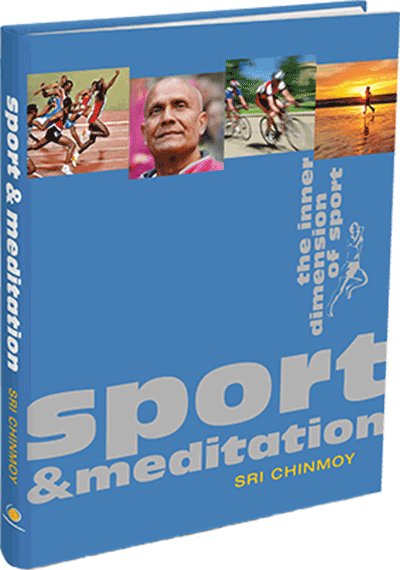I have a new fitness goal – training for the “Centenarian Decathlon” – i.e be fit when you are really old. The idea is that as we get older, our muscle and fitness declines rapidly. It means we can spend the last 10 years of our life, unable to move properly. The body fails before the heart and brain. The only way to be fit and mobile in the last decade of our life is to start training for it now.
The idea of a Centenarian Decathlon comes from Peter Attia – a doctor and fitness guru, who has spent a lot of time researching how to combat ageing and improve our healthy lifespan. He wrote a good book – “Outlive” which goes into different aspects of things that make a difference in improving life-expectancy and healthy life expectancy. An important conclusion from all his scientific research is that if you did one single thing to improve life and healthy life-expectancy – it is exercise. Exercise is the single most important thing that makes a difference. Try to eat healthy, get good sleep, minimise stress and cultivate happiness. But, if there is a magic bullet, it is exercise – aerobic, VO2 max and core strength.
The great thing about this book is that it really resonated with the philosophy of my spiritual teacher Sri Chinmoy. Sri Chinmoy valued physical fitness as it enables us to a have more rounded, fulfilling life.
"Physical fitness is of paramount importance. We are not practising sports to be the world’s greatest runner or athlete. We are praying to God to keep our body physically fit so that early in the morning we can pray and meditate and begin our day’s journey with a prayerful heart. If we do not do sports and take exercise to keep the body fit, then we may become weak and sickly and suffer from all kinds of pains and ailments." Sri Chinmoy answers, part 2, Agni Press, 1995
I remember Sri Chinmoy once said that once you are over 50 you should try and if possible do 2-3 hours of exercise and stretching per day. In this regard, Sri Chinmoy definitely practised what he preached. He himself would take regular exercise and stretching to keep fit.
"Physical fitness is of paramount importance. Do whatever exercise you want to, as long as you do something. I take daily at least two hours' exercise, sometimes two and a half, sometimes three. Usually, I do it at three different times during the day. Even at night, before I go to bed, I have some special exercises that I take." - Sri Chinmoy, Inner Meaning of Sport
When Sri Chinmoy was young, in India he was an excellent sprinter and decathlon champion. When he came to the West, he took up distance running. Unfortunately, as many of us will relate to, he experienced bad knee pain, which forced him to stop running. But, he never used this as an excuse to stop exercising. He would walk or exercise with weights. In his mid-70s, Sri Chinmoy was still active in weightlifting. I remember watching Sri Chinmoy walk painfully to a lifting apparatus and then use the parts of his body which could take the strain. Injury was never an excuse. In fact, in one tv interview, Sri Chinmoy explained his philosophy was to try and inspire people of his generation.
The idea of 2-3 hours per day exercise seems such a long-time. But, now I’m getting closer to 50, I have a goal to do this. And the thing is that to do 2-3 hours of exercise a day, you don't have to spend 2-3 hours in a gym. Try stand on one leg with your eyes closed! It's not as easy as it sounds. When waiting in a queue, you can do single leg exercises and stretches. Passes the time in a constructive way. Also, to create a time, I took to speed walking to the supermarket. Carrying shopping on back, is all good training.
Age is in the mind
In addition to training for old age, it is also worth trying to bear in mind, the philosophy "Age is in the mind - not the body" Sri Chinmoy's approach was always to imagine ourselves as young, not old.
Age is in the mind; age is not in the body. When we think that we are old, that is the end, the very end, of our journey. Every day at every moment only think that you are a seven-year-old or a nine-year-old or ten-year-old, but do not think that you are over thirty." Sri Chinmoy, Sri Chinmoy answers, part 35, Agni Press, 2004
Healthy Life-expectancy
Despite improvements in medicine we risk seeing a decline in healthy life expectancy through poor diet and exercise.
By the way, healthy life-expectancy is the age at which we are physically able to live an active life. The way modern medicine and health systems are set up – we focus a lot of effort on treating the symptoms of ill-health (and old age), but do very little on preventative medicine. But, we can definitely start now to improve our strength and fitness which is probably the best preventative medicine.
Vo2 Max
The good news for keen cyclists. VO2 max is one of the most reliable guides to life expectancy. The higher the VO2, there is a very strong correlation for higher life-expectancy. Even small amounts of high intensity training, can boost our VO2 max and our fitness. VO2 max steadily declines with age, but we can partly arrest the decline through training VO2 max specifically. In my own cycling, this year I haven’t done very much VO2 max efforts at all, just pottering around town. So this is a good reminder to make more of an effort in this regard.
Aerobic Base
As you might expect the more you improve your aerobic base, the more good things happen for our health. It improves our cardiovascular health, but also our general mood and feeling of well-being.
The Harvard professor in this video is very good. One of the most interesting things I learnt was when people are unfit, if they exercise they don’t get the same ‘buzz’ / ‘dopamine’ effect that trained athletes do. This is why unfit people don’t like exercise, it is just all suffering, little reward. But, when you get to a certain level of fitness, then increasingly the body is able to send a reward of ‘dopamine’ and exercise becomes much more enjoyable. This is why it can be so hard to get going with exercise; at the start, it is not much fun. But, if you can get a critical mass of fitness then everything becomes easier because exercise itself becomes more enjoyable. I’ve found that in my own exercise cycles. When you’re fit and firing on all cylinders, you can’t wait to get back on the bike and do more training. But, when you get out of the habit, the idea of doing hill intervals or whatever, appears less desirable.
Core strength
Another really important thing about training for old age is general all-round strength. As a cyclist, I have often been guilty of focusing only on cycling and not doing the more ‘boring’ core strength exercises. My body type is perfect for long-seated hill climbs. But, equally, it is unsuited for doing pull-ups and push ups. Yet, when you get really old, this kind of upper-body strength could be the difference between pulling yourself out of bed and being bedridden. I spend some time with a friend with Parkinson’s. When it kicks in, the legs stop working and to get out of bed, it requires pulling on bars to get up. It is touch and go, and this is a real motivation for training for old age. You realise every workout and muscle strength you developed – makes the difference of whether you can get out of bed, and being able to do basic tasks. There are also other exercises you can do in small confined spaces. I’m a big fan of eccentrics. Pretty much all using your body weight. The aim is to try and exercise all 600+ muscles in the body. The exercises seem easy, but the first time I did a 30 minute session, I couldn’t believe how stiff I was the next day! Muscles you don’t use in daily life.
Modern life
In the pandemic period, I got into the habit of online shopping. It’s amazing, you click on your computer and all your heavy shopping gets brought to your door. It saves so much effort. I used to take a rucksack when travelling, but now replace it with mini suitcases on wheels. Rather than take the stairs at the airport, we have lifts and travellators. Everything is geared towards comfort and ease of use. When we put a backpack on, it is a bit uncomfortable, so we seek ways to avoid lifting and carrying. Everything that used to keep the body in shape is being replaced by technology which does the heavy lifting for us. But, actually walking with a heavy backpack, is really good training for the body. It is why the army use this kind of training.
All this is good in the short-term, but it means the modern homeo sapiens is losing strength and the ability to function like we are supposed to. When things go wrong, it’s either too late or we just seek a solution to the problem of a weak body – not address the underlying cause. This is why we have to make so much conscious effort to keep the body active and avoid the comfort delusion. For example, when my 70-year-old mother brings in the shopping, I feel the right thing to do is go and help her carry the heavy shopping bags. But, actually, that weight training of lifting heavy shopping is the best thing she can do. She isn't always convinced at my logic!
On average I spend one hour a day cycling around Oxford, Kennington, mostly on the cycle path. It’s a really efficient way to both get around time, save money and keep fit. So that’s a start, but I need to work on improving upper body strength too.





